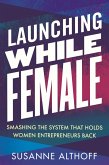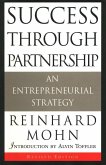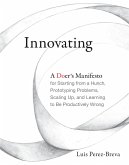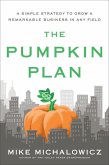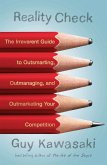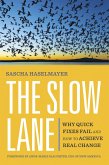Right now the number of people living on $2 a day or less is more than the entire population of the world in 1950. These 2.7 billion people are not just the world's greatest challenge-they represent an extraordinary market opportunity. By learning how to serve them ethically and effectively, businesses can earn handsome profits while helping to solve one of the world's most intractable problems. The key is what Paul Polak and Mal Warwick call Zero-Based Design: starting from scratch to create innovative products and services tailored for the very poor, armed with a thorough understanding of what they really want and need and driven by what they call "the ruthless pursuit of affordability."Polak has been doing this work for years, and Warwick has extensive experience in both business and philanthropy. Together, they show how their design principles and vision can enable unapologetic capitalists to supply the very poor with clean drinking water, electricity, irrigation, housing, education, healthcare, and other necessities at a fraction of the usual cost and at profit margins attractive to investors. Promising governmental and philanthropic efforts to end poverty have not reached scale because they lack the incentives of the market to attract massive resources. This book opens an extraordinary opportunity for nimble entrepreneurs, investors, and corporate executives that will result not only in vibrant, growing businesses but also a better life for the world's poorest people.
Hinweis: Dieser Artikel kann nur an eine deutsche Lieferadresse ausgeliefert werden.
Dieser Download kann aus rechtlichen Gründen nur mit Rechnungsadresse in A, D ausgeliefert werden.
Hinweis: Dieser Artikel kann nur an eine deutsche Lieferadresse ausgeliefert werden.
One of the most hopeful propositions to come along in a long time. Paul Polak and Mal Warwick s approach is original, ambitious, and practical and it just may be the key to reducing the number of people in poverty on a very large scale. They propose to harness the power of free enterprise to begin meeting the most basic needs of the poor . . . while making a profit. Though market-based approaches aren t new, Polak and Warwick lay out a practical and systematic way to work on a global scale, transforming the lives of hundreds of millions of poor people.
President Bill Clinton
In down-to-earth prose that's a pleasure to read, Polak and Warwick describe in detail, and with abundant examples, how to build a multinational business that will help end the tragedy of poverty while opening up new markets and returning attractive profits. This book is must reading for senior management at every major corporation with global operations.
Aron Cramer, President and CEO, Business for Social Responsibility
As this extraordinary book makes so clear, business alone possesses the power and the resources to help billions of the world s poor rise out of poverty. I believe we have a responsibility to do so, too. In these few pages, Polak and Warwick provide us with a detailed blueprint for the construction of new business ventures that will directly address the scourge of poverty.
Anand Mahindra, Chairman, Mahindra & Mahindra
The Business Solution to Poverty is an incredible resource for values-driven business leaders and entrepreneurs who want to improve performance, foster meaningful social change, and enhance the bottom line. Though written with developing countries in mind, the principles of Zero-Based Design can be put to work anywhere. Read this book and change the world!
Deborah Nelson, Executive Director, Social Venture Network
I visited several small poor villages in rural Orissa where Spring Health, one of the companies this book describes, sells safe drinking water. I believe Spring Health will grow quickly into a very big company. You can learn how to build such a company through this extraordinary book. Paul Polak and Mal Warwick offer a way forward for enterprising multinational companies to expand their markets, acquire tens of millions of new customers, and generate handsome profits while helping millions of very poor people to lift themselves into the middle class.
Tim Solso, former Chairman and CEO, Cummins
The Business Solution to Poverty presents a radical new idea that s firmly grounded in common sense. This book describes precisely the sort of investment opportunity that patient investors who seek social impact are looking for. Once companies like those Paul Polak and Mal Warwick envision are up and running and looking to the capital markets, I m confident they will provide the opportunities for funding to help put an end to global poverty.
Wayne Silby, Founding Chair, Calvert Funds
The failure of foreign aid and other efforts by outsiders to end poverty in developing countries is no secret. But now we have a promising alternative approach to this age-old challenge. The Business Solution to Poverty shows the way, step by step, with countless examples that virtually leap off the page.
Barbara Lee, cofounder and Cochair, Congressional Out-of-Poverty Caucus, and Chair, Democratic Whip Task Force on Poverty and Opportunity
Paul Polak and Mal Warwick have written an insightful and accessible guide for co-investing in a way that enriches the livelihoods of the poor and the souls of investors. Why are we here, anyway? Whether you re an entrepreneur or investor, The Business Solution to Poverty has an abundance of examples of what it takes for enterprises to be successful and transformational in emerging markets.
Bob Pattillo, founder, Gray Ghost Ventures
Few people in rich countries like the United States can imagine what poverty in the developing world is really like. The Business Solution to Poverty will help readers everywhere understand both the enormous human toll that poverty takes and the true potential to end it.
Van Jones, cofounder, Green for All and Rebuild the Dream
Finally, a solutions-focused approach, as opposed to the typical problems-focused approach, toward solving one of the most pressing global issues of our time global poverty. Polak and Warwick fully understand that business, not aid, offers the greatest opportunity to serve the world s three billion people living in poverty and that a profit-based solution will move the needle far faster than tired models of traditional philanthropy. These emerging markets represent a vast opportunity for successful enterprises to flourish successfully, and the authors give us a practical guide to doing so.
Kellie A. McElhaney, author of Just Good Business and Founding Faculty Director, Center for Responsible Business, Haas School of Business, University of California, Berkeley
This is a very practical and compelling set of takeaway ideas to accelerate the use of business tools to end poverty. They are based on decades of operational success that have benefited some of the world s most impoverished people. Polak and Warwick have produced a gem that teems with easy-to-understand concepts and brilliant examples that show how business can make a historic contribution to improving life conditions in developed and underdeveloped societies.
Ron Grzywinski, cofounder, ShoreBank
The Business Solution to Poverty is based on decades of experience in eradicating poverty through profitable business. This astounding book will teach you how to practice ruthless affordability, zero-based design, last-mile delivery, and other essentials of poverty alleviation. Your view of poverty and perhaps of business, too will never be the same.
Gifford Pinchot, President, Bainbridge Graduate Institute
The Business Solution to Poverty turns Paul Polak s groundbreaking work to expand affordable irrigation for the dollar-a-day farmer into a compelling and practical vision to eradicate poverty. An indispensible resource for all with a big idea, an entrepreneurial spirit, and a drive to make poverty history.
Sandra Postel, author, lecturer, and Director, Global Water Policy Project
Though The Business Solution to Poverty presents a powerful case for a market-based path to a world without poverty, it also lays out a practical and compelling vision of the role that philanthropy and NGOs can play.
Neelam Makhijani, Chief Executive, Resource Alliance
The Business Solution to Poverty helps us understand what poverty looks like in developing countries. Moreover, it challenges us to consider how to best reach potential customers at the bottom of the pyramid by calling for a revolution not just in design but also in corporate blueprints ushering in a new breed of businesses that should help transform the marketplace in emerging markets.
Randall T. Kempner, Executive Director, Aspen Network of Development Entrepreneurs
Paul Polak is a hero of mine. His vision, like that of Muhammad Yunus, is to use business to serve the very poor at scale. As entrepreneurs who walk their talk, Polak and Warwick demand that we deliver value to the poor, not catchphrases to the media, and that we do so at a scale commensurate with the need. Polak s personal experience delivering needed basic services over the last mile is what makes this book powerful.
Jay Coen Gilbert, cofounder, B Lab
The Business Solution to Poverty makes a strong case that business, employing innovative technology, can effectively end extreme poverty in collaboration with government and local communities.
Rajiv J. Shah, Administrator, United States Agency for International Development
President Bill Clinton
In down-to-earth prose that's a pleasure to read, Polak and Warwick describe in detail, and with abundant examples, how to build a multinational business that will help end the tragedy of poverty while opening up new markets and returning attractive profits. This book is must reading for senior management at every major corporation with global operations.
Aron Cramer, President and CEO, Business for Social Responsibility
As this extraordinary book makes so clear, business alone possesses the power and the resources to help billions of the world s poor rise out of poverty. I believe we have a responsibility to do so, too. In these few pages, Polak and Warwick provide us with a detailed blueprint for the construction of new business ventures that will directly address the scourge of poverty.
Anand Mahindra, Chairman, Mahindra & Mahindra
The Business Solution to Poverty is an incredible resource for values-driven business leaders and entrepreneurs who want to improve performance, foster meaningful social change, and enhance the bottom line. Though written with developing countries in mind, the principles of Zero-Based Design can be put to work anywhere. Read this book and change the world!
Deborah Nelson, Executive Director, Social Venture Network
I visited several small poor villages in rural Orissa where Spring Health, one of the companies this book describes, sells safe drinking water. I believe Spring Health will grow quickly into a very big company. You can learn how to build such a company through this extraordinary book. Paul Polak and Mal Warwick offer a way forward for enterprising multinational companies to expand their markets, acquire tens of millions of new customers, and generate handsome profits while helping millions of very poor people to lift themselves into the middle class.
Tim Solso, former Chairman and CEO, Cummins
The Business Solution to Poverty presents a radical new idea that s firmly grounded in common sense. This book describes precisely the sort of investment opportunity that patient investors who seek social impact are looking for. Once companies like those Paul Polak and Mal Warwick envision are up and running and looking to the capital markets, I m confident they will provide the opportunities for funding to help put an end to global poverty.
Wayne Silby, Founding Chair, Calvert Funds
The failure of foreign aid and other efforts by outsiders to end poverty in developing countries is no secret. But now we have a promising alternative approach to this age-old challenge. The Business Solution to Poverty shows the way, step by step, with countless examples that virtually leap off the page.
Barbara Lee, cofounder and Cochair, Congressional Out-of-Poverty Caucus, and Chair, Democratic Whip Task Force on Poverty and Opportunity
Paul Polak and Mal Warwick have written an insightful and accessible guide for co-investing in a way that enriches the livelihoods of the poor and the souls of investors. Why are we here, anyway? Whether you re an entrepreneur or investor, The Business Solution to Poverty has an abundance of examples of what it takes for enterprises to be successful and transformational in emerging markets.
Bob Pattillo, founder, Gray Ghost Ventures
Few people in rich countries like the United States can imagine what poverty in the developing world is really like. The Business Solution to Poverty will help readers everywhere understand both the enormous human toll that poverty takes and the true potential to end it.
Van Jones, cofounder, Green for All and Rebuild the Dream
Finally, a solutions-focused approach, as opposed to the typical problems-focused approach, toward solving one of the most pressing global issues of our time global poverty. Polak and Warwick fully understand that business, not aid, offers the greatest opportunity to serve the world s three billion people living in poverty and that a profit-based solution will move the needle far faster than tired models of traditional philanthropy. These emerging markets represent a vast opportunity for successful enterprises to flourish successfully, and the authors give us a practical guide to doing so.
Kellie A. McElhaney, author of Just Good Business and Founding Faculty Director, Center for Responsible Business, Haas School of Business, University of California, Berkeley
This is a very practical and compelling set of takeaway ideas to accelerate the use of business tools to end poverty. They are based on decades of operational success that have benefited some of the world s most impoverished people. Polak and Warwick have produced a gem that teems with easy-to-understand concepts and brilliant examples that show how business can make a historic contribution to improving life conditions in developed and underdeveloped societies.
Ron Grzywinski, cofounder, ShoreBank
The Business Solution to Poverty is based on decades of experience in eradicating poverty through profitable business. This astounding book will teach you how to practice ruthless affordability, zero-based design, last-mile delivery, and other essentials of poverty alleviation. Your view of poverty and perhaps of business, too will never be the same.
Gifford Pinchot, President, Bainbridge Graduate Institute
The Business Solution to Poverty turns Paul Polak s groundbreaking work to expand affordable irrigation for the dollar-a-day farmer into a compelling and practical vision to eradicate poverty. An indispensible resource for all with a big idea, an entrepreneurial spirit, and a drive to make poverty history.
Sandra Postel, author, lecturer, and Director, Global Water Policy Project
Though The Business Solution to Poverty presents a powerful case for a market-based path to a world without poverty, it also lays out a practical and compelling vision of the role that philanthropy and NGOs can play.
Neelam Makhijani, Chief Executive, Resource Alliance
The Business Solution to Poverty helps us understand what poverty looks like in developing countries. Moreover, it challenges us to consider how to best reach potential customers at the bottom of the pyramid by calling for a revolution not just in design but also in corporate blueprints ushering in a new breed of businesses that should help transform the marketplace in emerging markets.
Randall T. Kempner, Executive Director, Aspen Network of Development Entrepreneurs
Paul Polak is a hero of mine. His vision, like that of Muhammad Yunus, is to use business to serve the very poor at scale. As entrepreneurs who walk their talk, Polak and Warwick demand that we deliver value to the poor, not catchphrases to the media, and that we do so at a scale commensurate with the need. Polak s personal experience delivering needed basic services over the last mile is what makes this book powerful.
Jay Coen Gilbert, cofounder, B Lab
The Business Solution to Poverty makes a strong case that business, employing innovative technology, can effectively end extreme poverty in collaboration with government and local communities.
Rajiv J. Shah, Administrator, United States Agency for International Development



